The Potting Shed: How one gardener's obsession with antiques transformed a humble potting shed into a heritage (yet practical) haven
Kevin Brost's garden shed in Door County is a masterclass in turning a storage space into something beautiful – here's how to style and shop the look
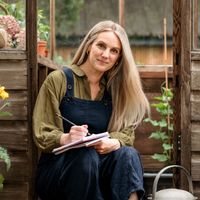
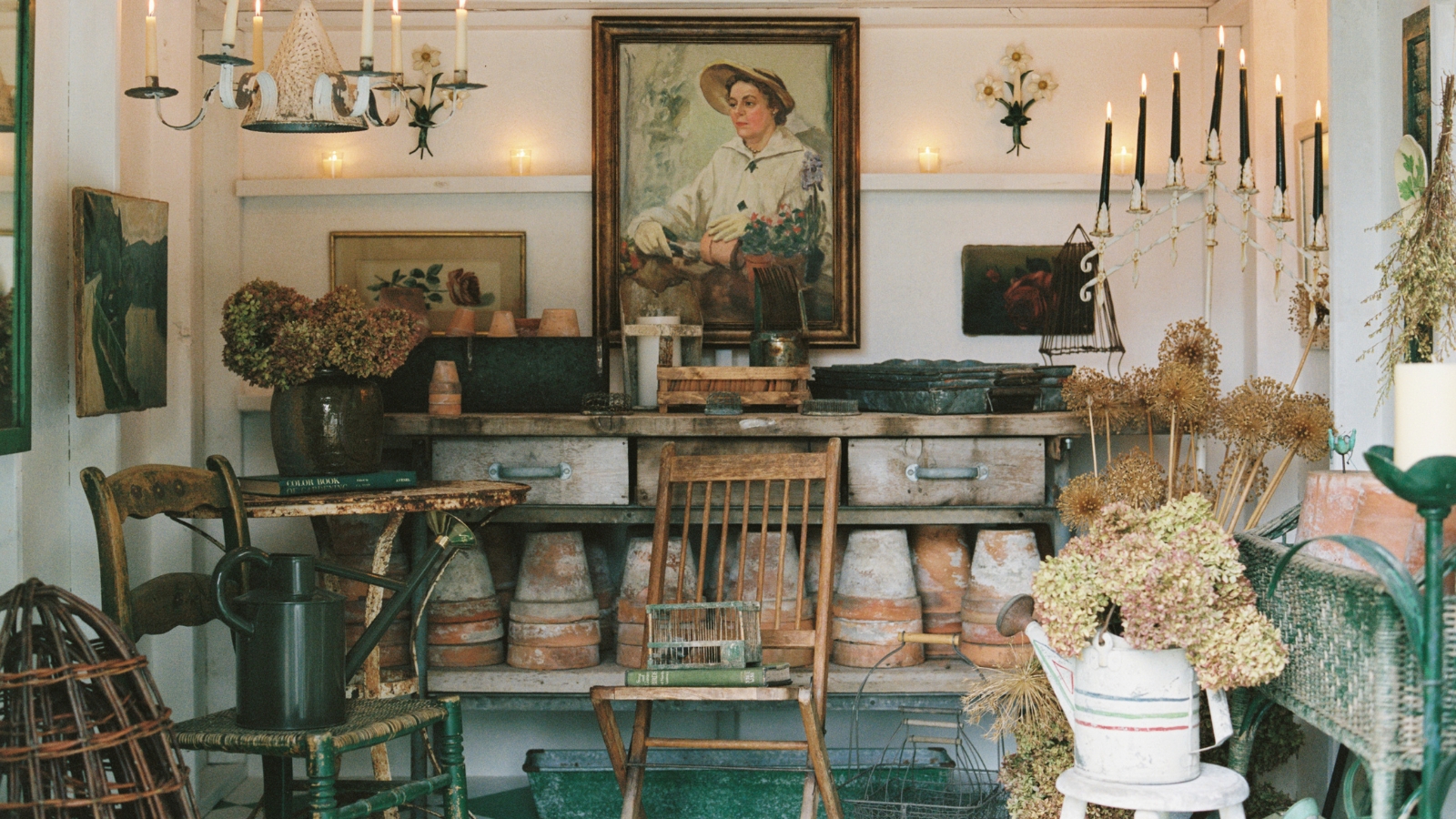
When Kevin Brost and his partner Ian finished renovating their homespun 1940s cottage in Door County, Wisconsin, they set their creative sights on a slightly smaller, yet no less charming, project: their garden potting shed.
This space is all the confirmation you’ll ever need that a practical, hardworking shed can also be utterly beguiling and bursting with individuality. ‘The shed is mainly used to store our gardening equipment since the cottage does not have a garage,’ says the former attorney. ‘But in summer when the heat is on, Ian and I will often have our first glass of rosé in the shade and beauty of the shed looking out onto our property.’
Kevin’s love of heritage style and decorating with antiques spills out in abundance in this space. With terracotta pots stacked under a vintage potting bench, and wooden handled rakes hung on the walls as if works of art, each and every tool, vase, or piece of furniture has its own place.
A closer look inside the potting shed
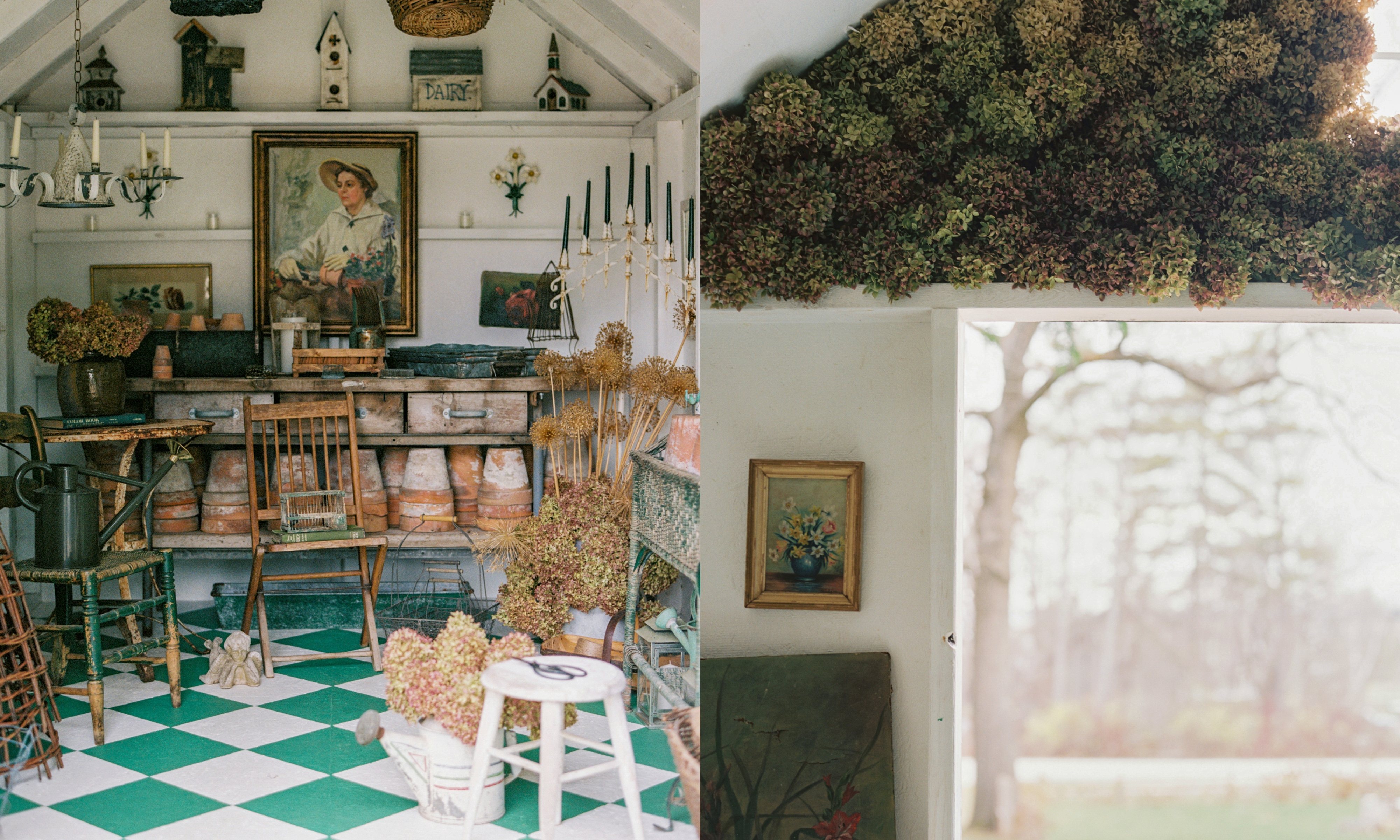
Beauty and functionality meet with aplomb here; it's more like stepping inside a French brocante than a garden shed.
With vintage, botanical artwork adorning the walls, and dried hydrangeas erupting from wicker baskets suspended from the ceiling, Kevin has created a styled sense of timeless charm in what, ultimately, is a storage space.
‘The vintage artwork we selected for the space largely depicts flowers and other plants,’ explains Kevin. ‘We also made a choice to hang many of the objects visibly on the open, exposed wood walls. Well made tools are beautiful in their own right.’
The interior of the shed is entirely white (a mix of Benjamin Moore’s Chantilly Lace, Oxford White and Behr’s Pure White), save for the iconic checkerboard design painted onto the raw wood floor. This immediately draws the eye and adds a delightful fun factor to the space. The green paint shade is Benjamin Moore’s Dunmore Green.
‘I’d always admired checkerboard floors, but was nervous to try one inside the cottage for fear I’d grow tired of it,’ explains Kevin. ‘The shed offered a solution to have one that we wouldn’t see for hours every day. It’s just as beautiful when dirt from our garden boots joins the show.’
The edge of the space is lined with antique potting benches, tables and wire baskets, each object housing pots and tools of all shapes and sizes.
‘Although it’s primarily a space to store equipment for work, time in the shed instils a strong sense of peace,’ says Kevin. ‘We didn’t need vintage art on the walls, but having it there makes the space sing.’
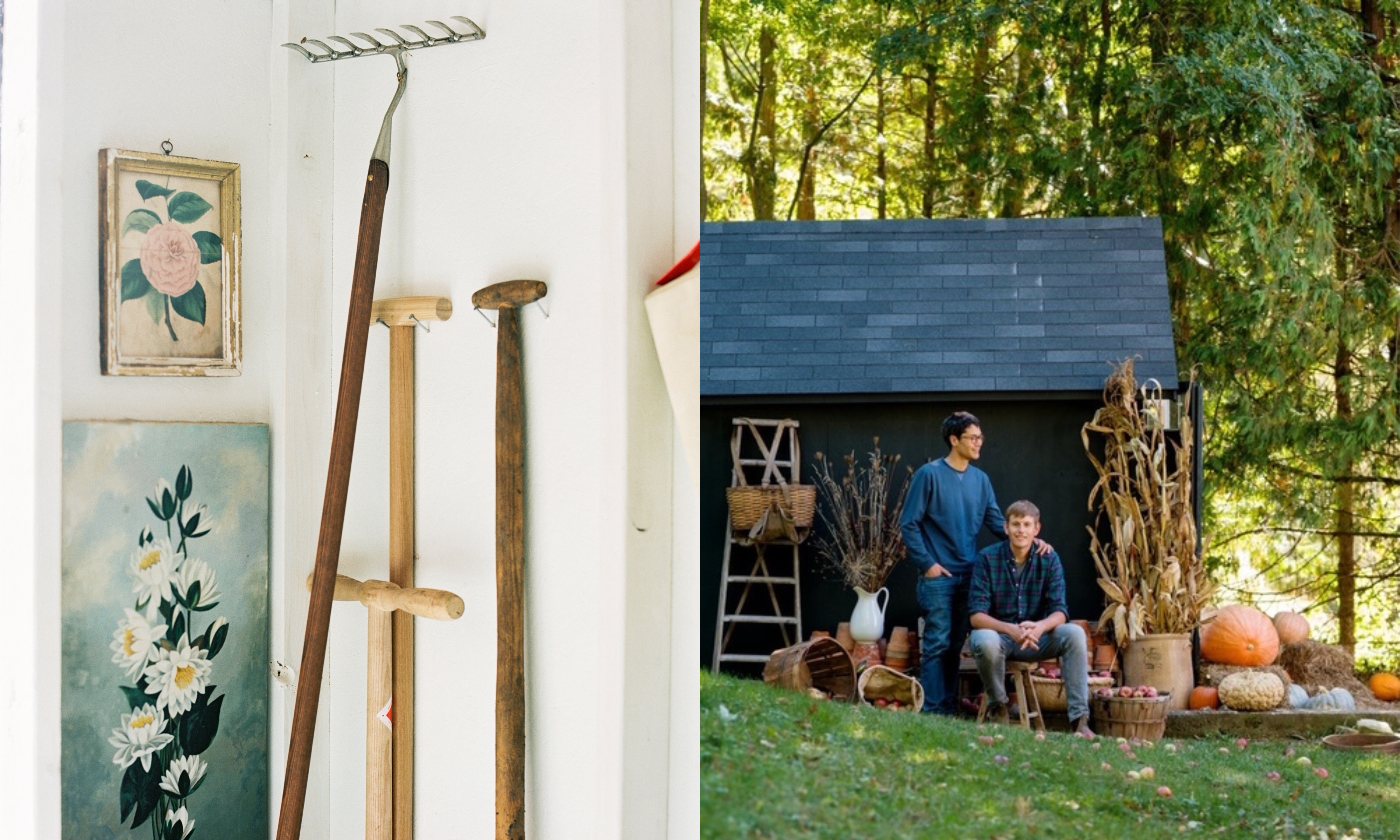
The homes and gardens of the UK provided much inspiration for Kevin when designing the interiors of his cottage and the shed.
‘The Brits are great at using vintage items not only to make a space more beautiful, but also more approachable and comfortable. The shed reflects these influences, but also our own eye when shopping in person for art and vintage goodies.’
Once Kevin and Ian completed the shed, it was time to upgrade their gardening essentials. Out went the cheap plastic tools from the big-box stores, and in came heritage wood and metal alternatives from companies such as Sneeboer.
‘They’re made from real materials, so they only get more beautiful with time and use,’ says Kevin. ‘And the small up-front investment means you actually take care of the items. Oh and they happen to be beautiful hanging on the shed walls!’
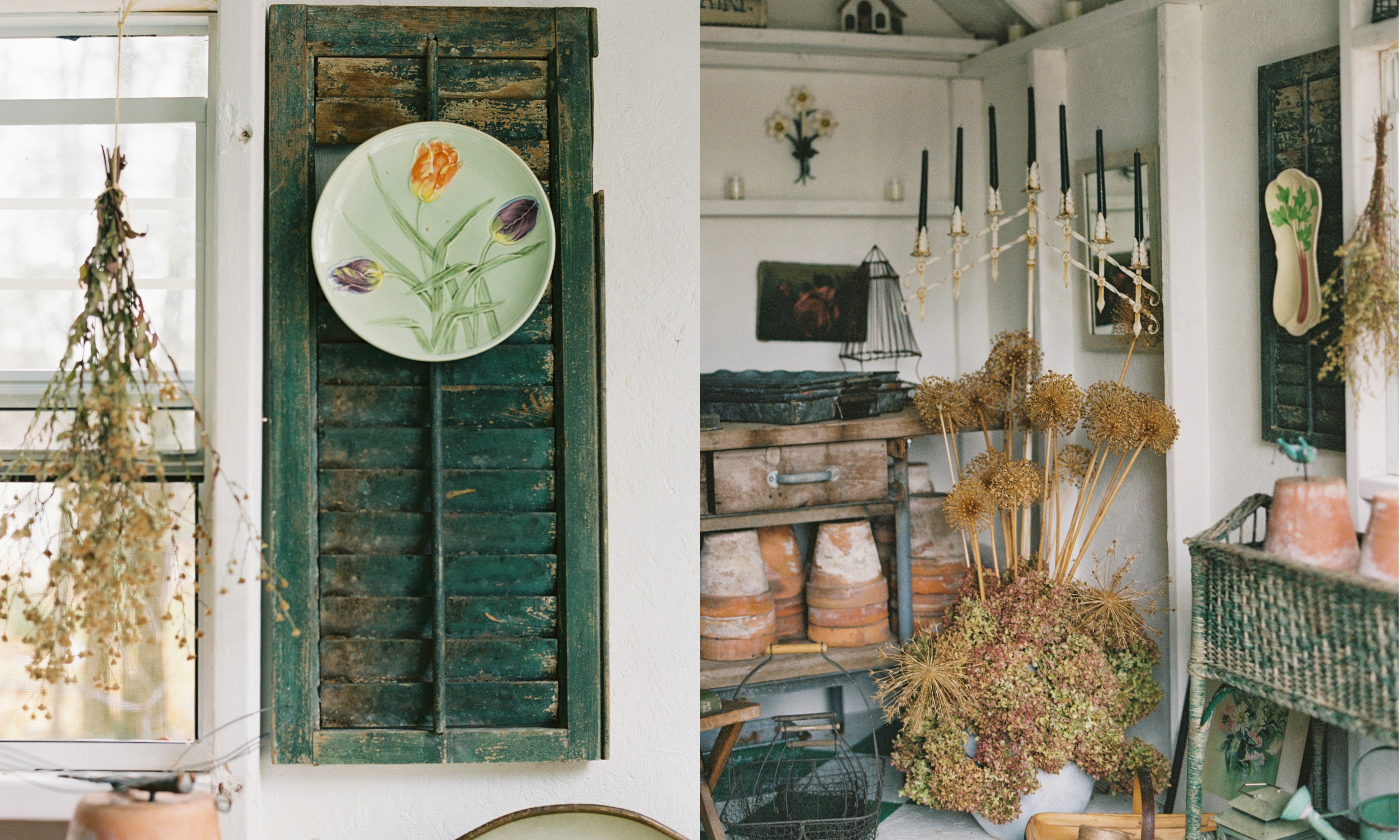
Another homespun art installation Kevin created in the shed is the stunning collection of dried hydrangea heads on display above the entrance, cut from the 40 or so hydrangea paniculata 'little lime' the pair planted to create a living fence in their garden.
‘Last fall, we added cut hydrangeas to the baskets, and they’re even more beautiful now,’ says Kevin.
‘The garden also includes irises, catmint, and climbing roses. A number of heritage fruit tree varieties are also in the front yard. And we’re just getting started,’ he adds.
Perhaps surprisingly, Kevin says the most useful storage solution afforded by the shed is its location.
‘The task that draws you to the garden is rarely the only one that needs doing,' he says. 'Having all the items in the close shed means others can be grabbed in real time, when you’re in the garden and notice an additional task asking for attention.’
Shop this space
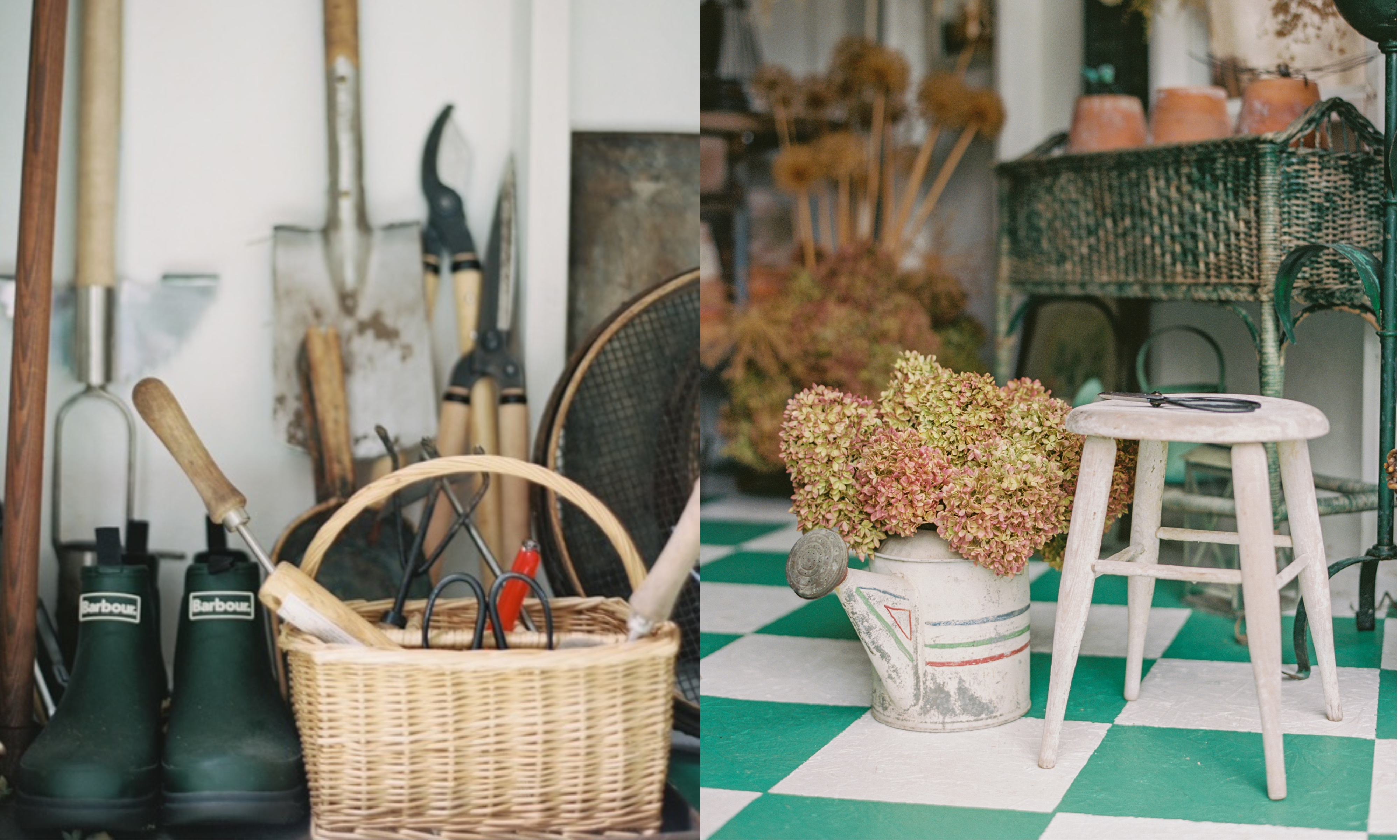
Nearly all the vintage and antique items in the shed were found by Kevin and Ian in antique shops in the Midwest, including the charming collection of wicker baskets, just like this amazing, similar find on Amazon.
Other items, such as the vintage pots, were a lucky Facebook marketplace discovery from a nursery that was being retired. 'We only paid a dollar apiece, but what they bring to the shed is invaluable,' says Kevin.
So, some research into the best places to shop antique and vintage this September may well be required if you want to recreate a similar look and feel by decorating with antiques. However, it is entirely possible to do so by curating a mix of old and carefully chosen new pieces.
For example, you can find the willow cloches (stacked on the left side of the shed) available to buy at Wayfair.
Here are more practical yet pleasing finds that will give a vintage, homespun feel to your garden space.
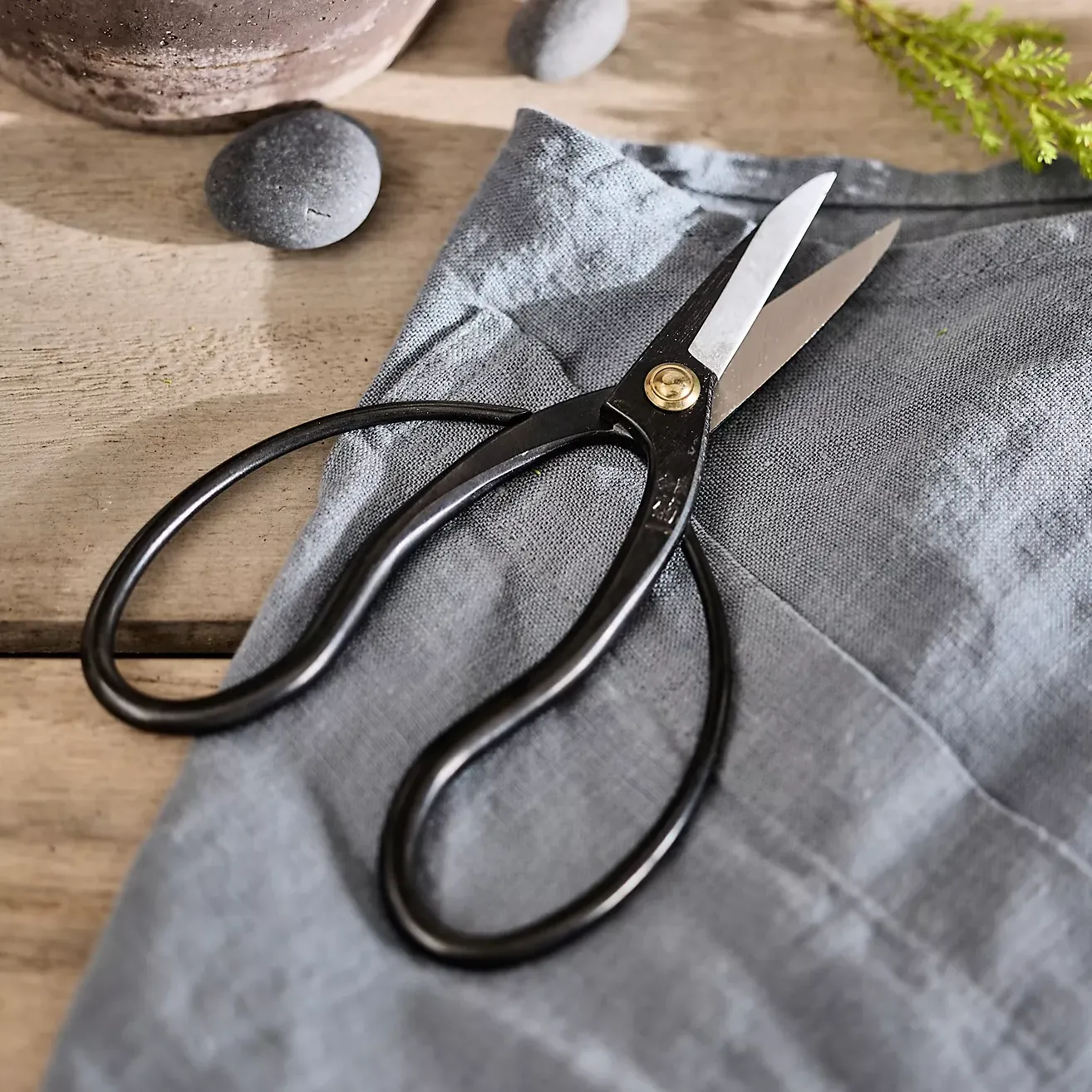
Niwaki scissors are the best in the business, and this classic black pair is a wonderful investment. Hung on a wall or from rustic shelves, they also beg to be kept on show.
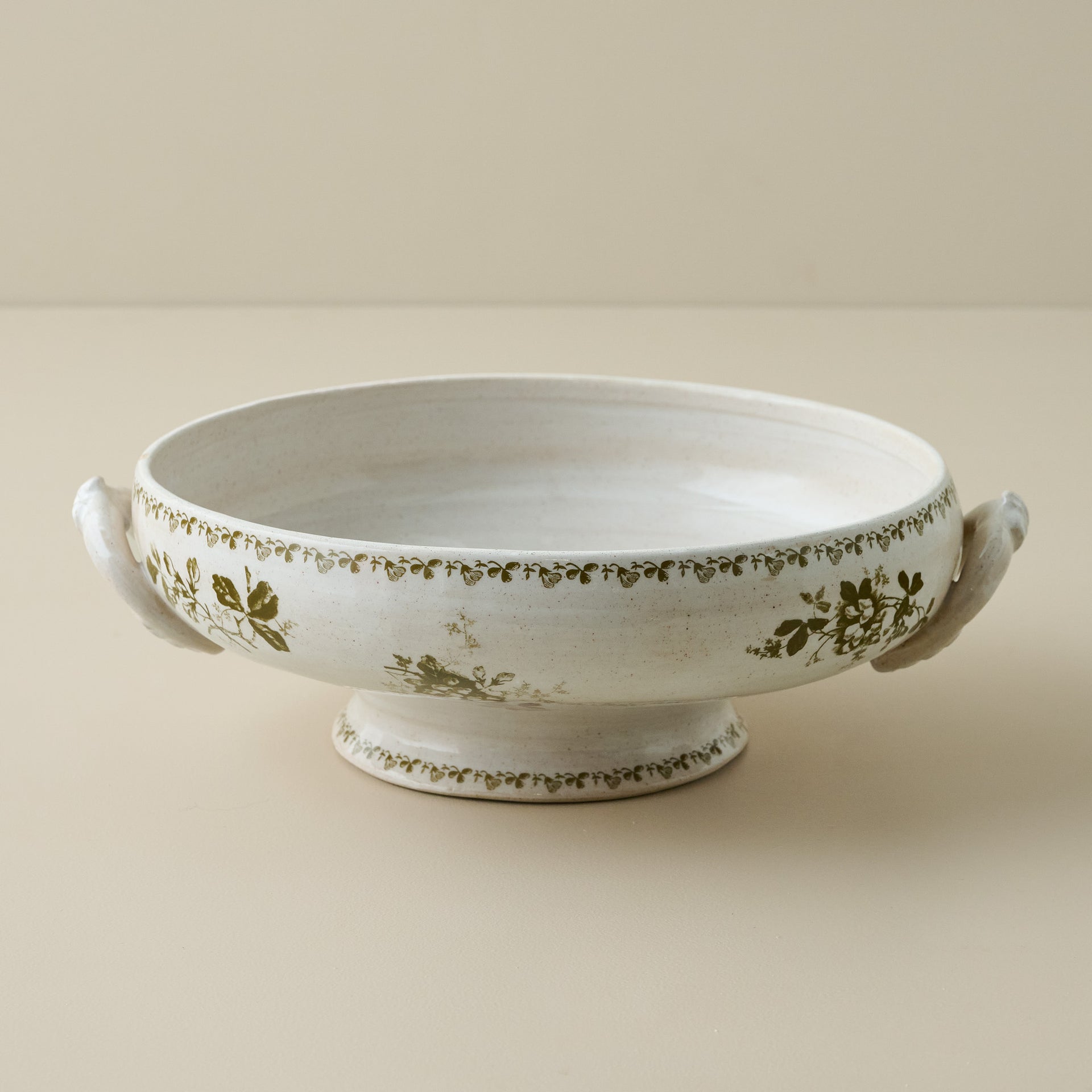
There are so many potential uses for this beautiful floral serving bowl that would elevate a garden shed. Fill it with rolls of natural twine, use it to store your seed packets, or simply add dried hydrangea heads and admire its beauty.
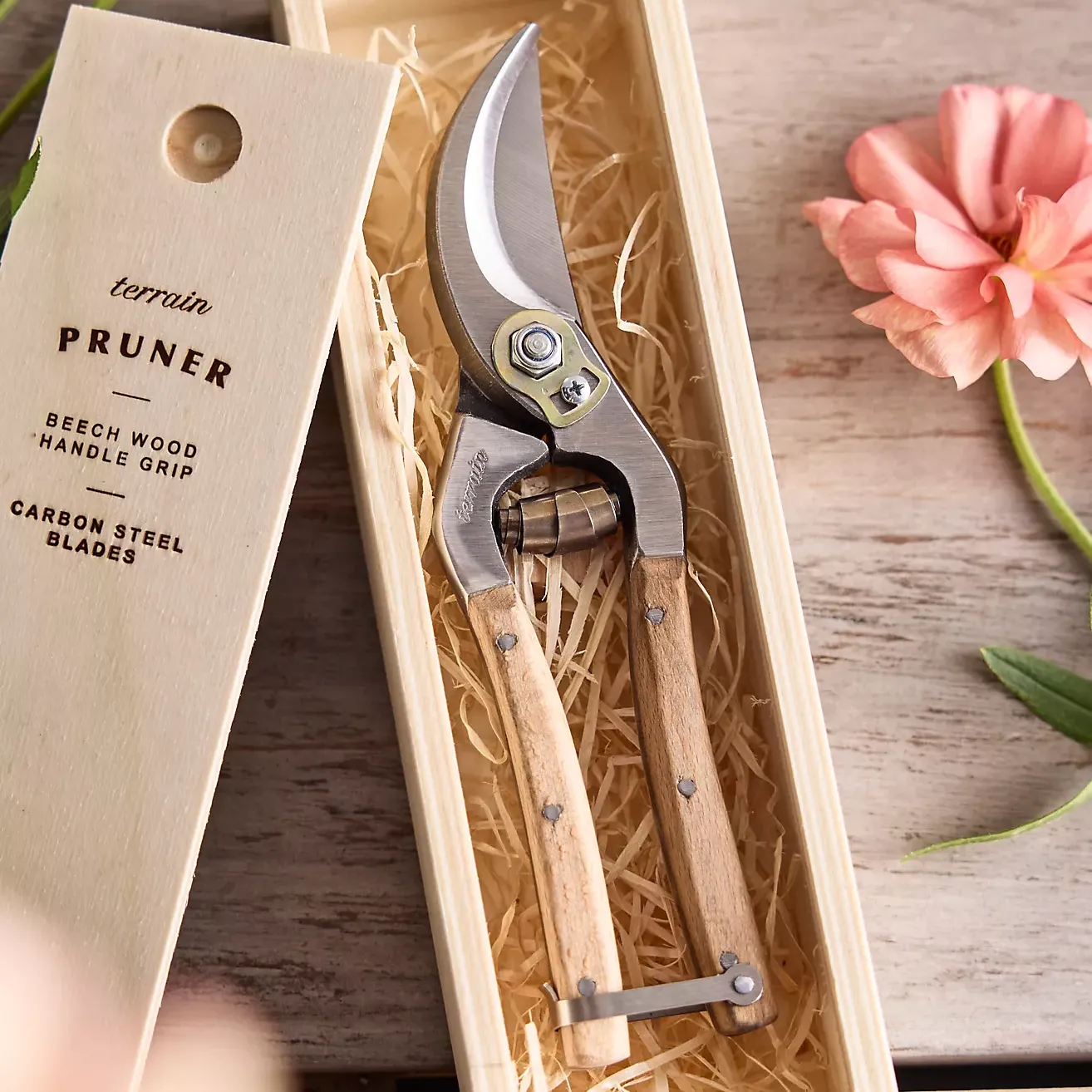
Terrain tools are so solidly built, you may never have to buy another pair of pruners again once these are in your toolbox. The beech wood handle sells it for me. They are going on my Christmas list.
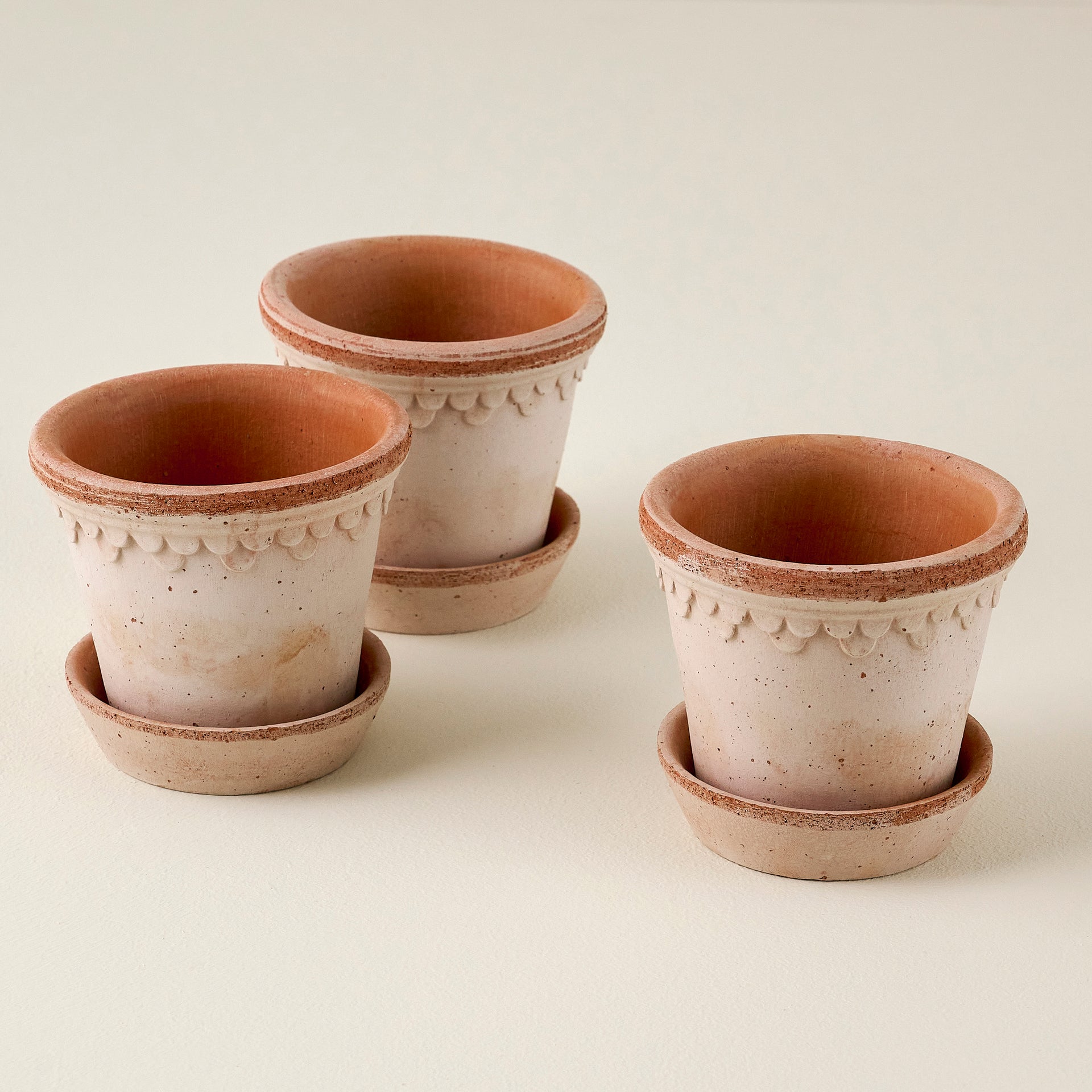
Having functional items double as stylish display objects is key to nailing this look. Yes, you might find terracotta pots in bulk at antiques fairs and flea markets, but these would look stunning potted up with geraniums to add rustic freshness.
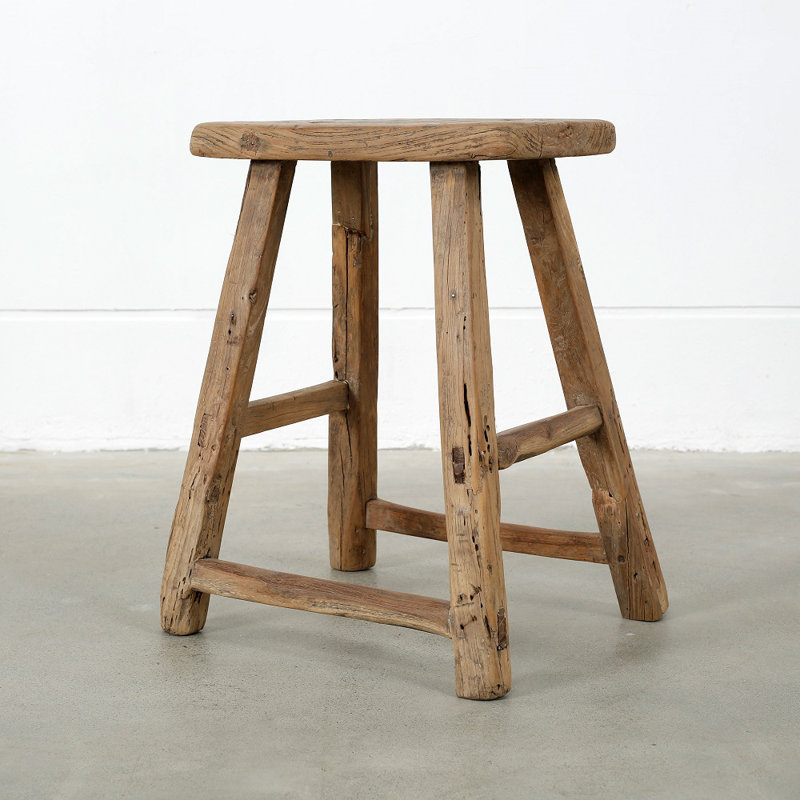
I absolutely adore vintage stools, and especially old milking stools, which this Wayfair find resembles. Always useful for reaching the higher shelves, and beautiful styled with fall pumpkins or fresh flowers.
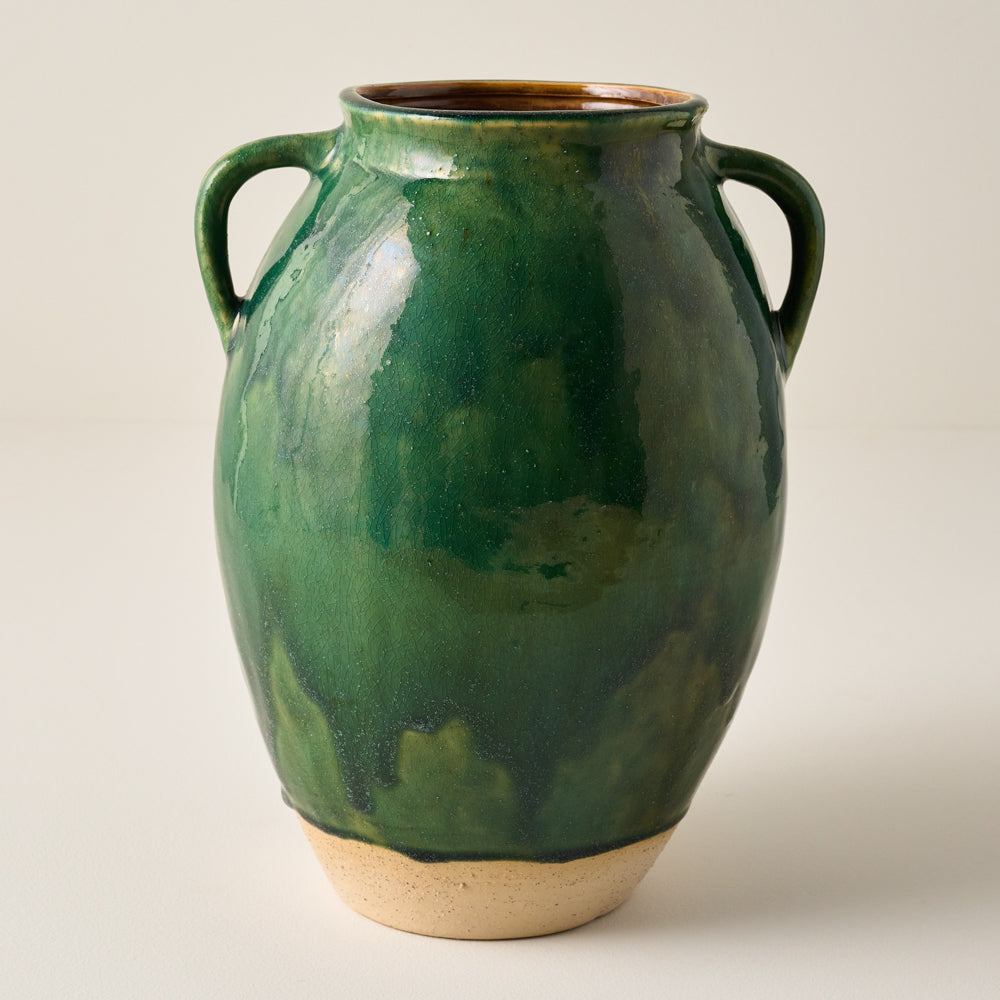
A glazed pot or vase placed on the floor is the perfect vessel for storing your dried flowers, such as alliums or miscanthus grasses. Ideal for making a feature out of your dried stems.
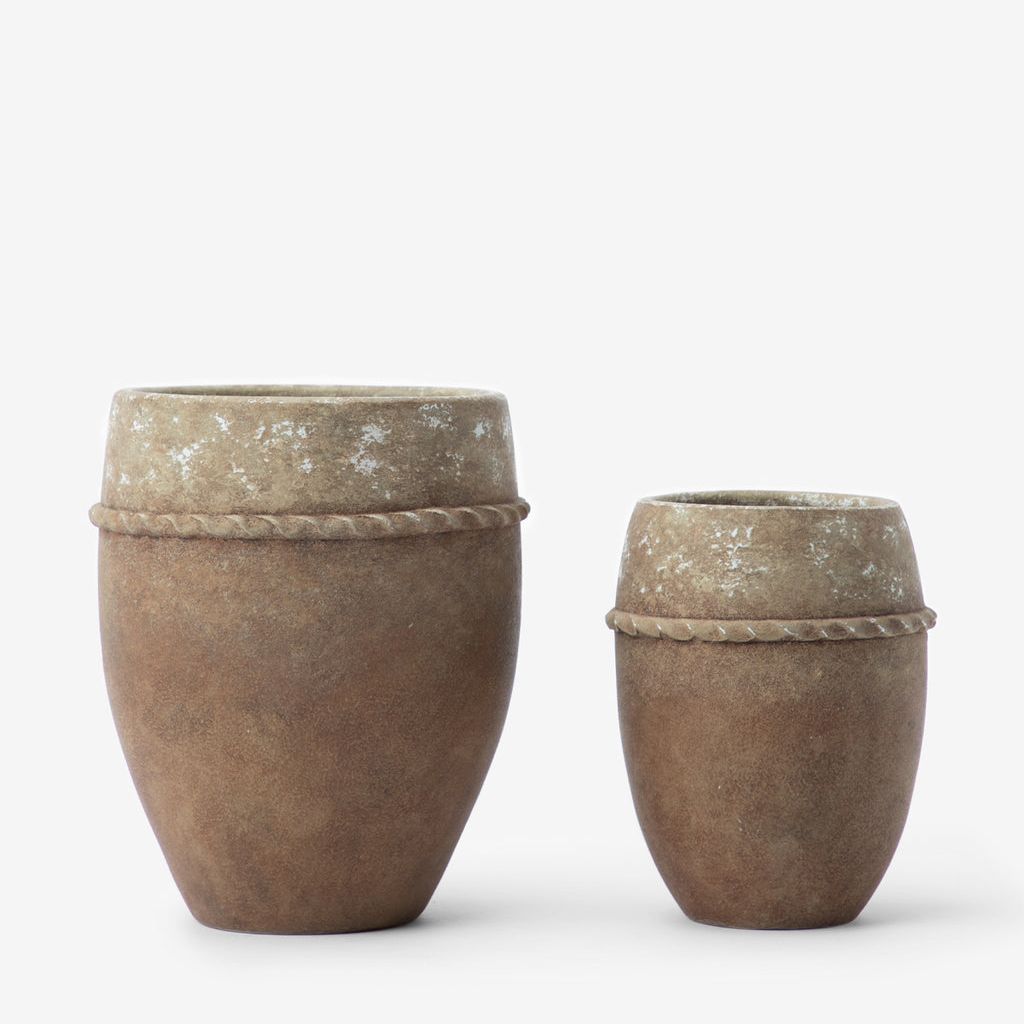
When not in use in the yard or on a patio, rustic planters can double as storage vessels for bamboo canes, dried flowers, or even firewood. Thinking about storing these everyday garden items in a stylish way can transform a functional space.
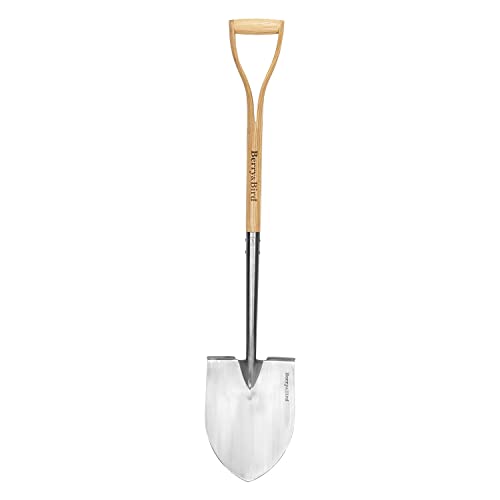
This Berry & Bird garden spade is a one-off investment purchase that will look just as good displayed on your potting shed wall as it will in your hands. The drop-shaped shovel makes digging even easier, too.
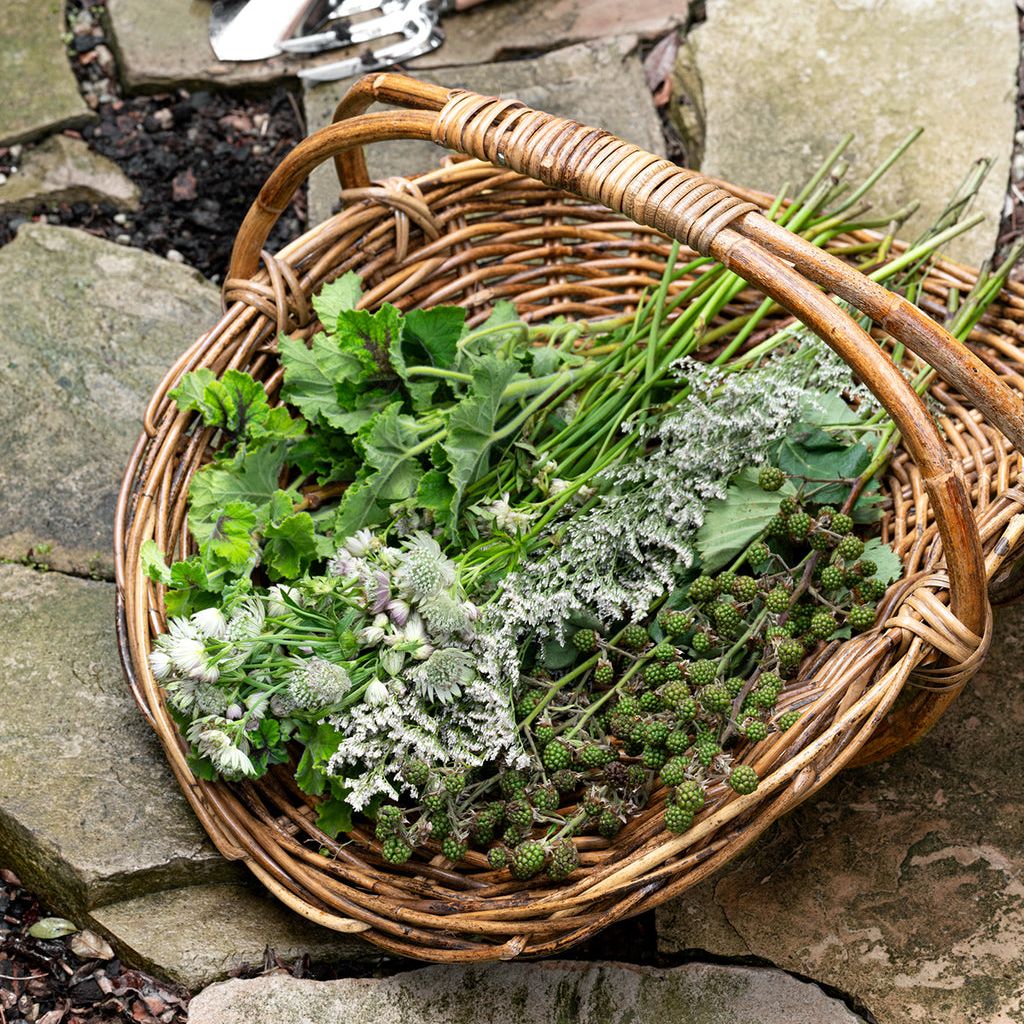
Nothing says vintage appeal quite like a wicker trug, especially in fall. For me, this is a must-have accessory. When not using it to gather your home-grown veggies or cut flowers, hang it from the ceiling and adorn with dried flower stems.
It's quite common to think of greenhouse ideas as being more than simply a place to raise seedlings and store compost, but rarely does the imagination stretch to those often cluttered, neglected garden storage spaces. Kevin and Ian's potting shed is proof in abundance that garden storage, when curated with individuality and style, and with well made, heritage items, can be a truly beautiful thing.
The Potting Shed is a new series that steps inside the sheds and greenhouses of designers and gardeners to uncover the practical tools and stylish essentials they use every day. We reveal how these spaces are organized, what products they rely on, and how small details – from favorite pots and vintage finds to seasonal gear – help shape their gardening routines.
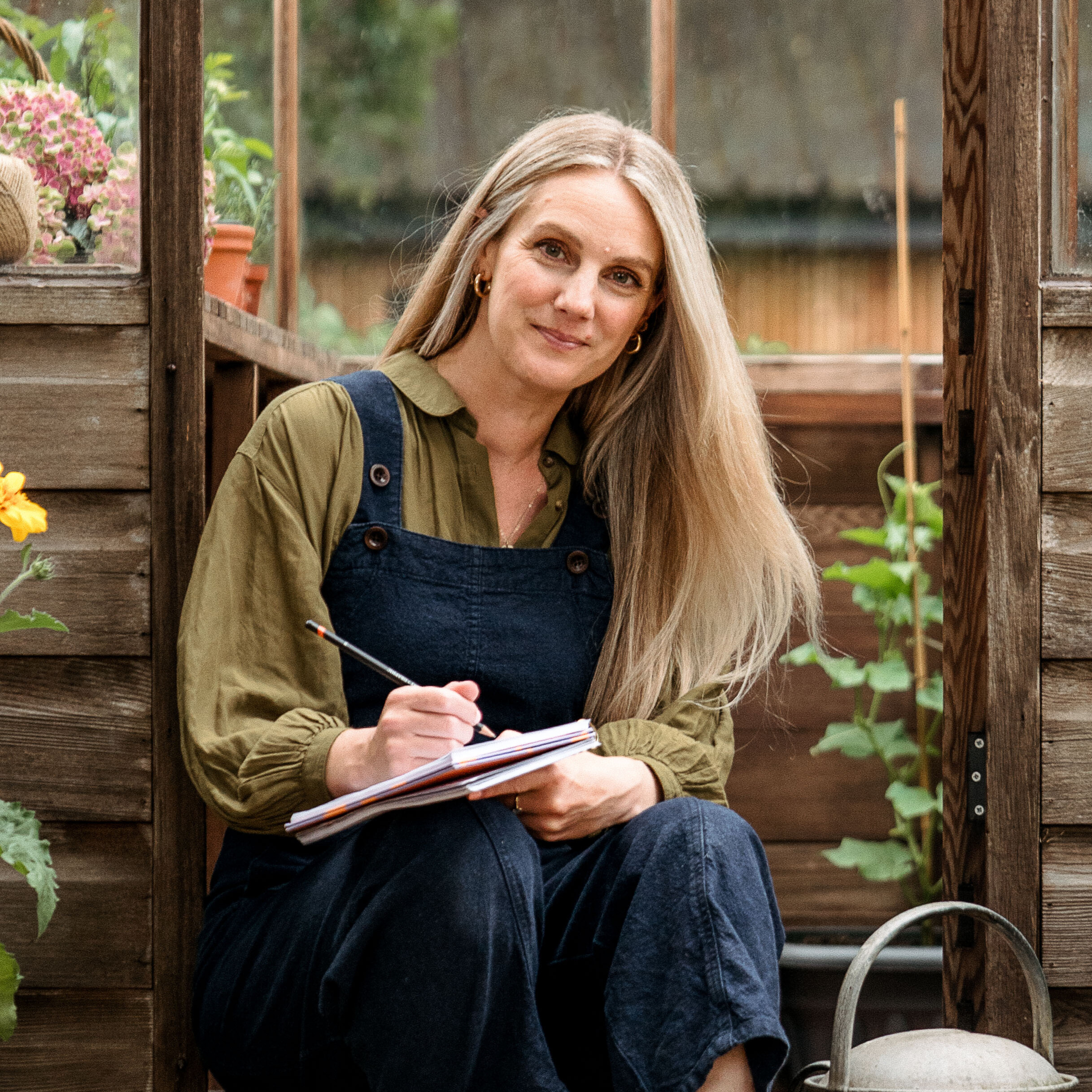
Rachel is a gardening editor, floral designer, flower grower and gardener. Her journalism career began on Country Living magazine, sparking a love of container gardening and wild planting. After several years as editor of floral art magazine The Flower Arranger, Rachel became a floral designer and stylist, before joining Homes & Gardens in 2023. She writes and presents the brand's weekly gardening and floristry social series Petals & Roots. An expert in cut flowers, she is particularly interested in sustainable gardening methods and growing flowers and herbs for wellbeing. Last summer, she was invited to Singapore to learn about the nation state's ambitious plan to create a city in nature, discovering a world of tropical planting and visionary urban horticulture.